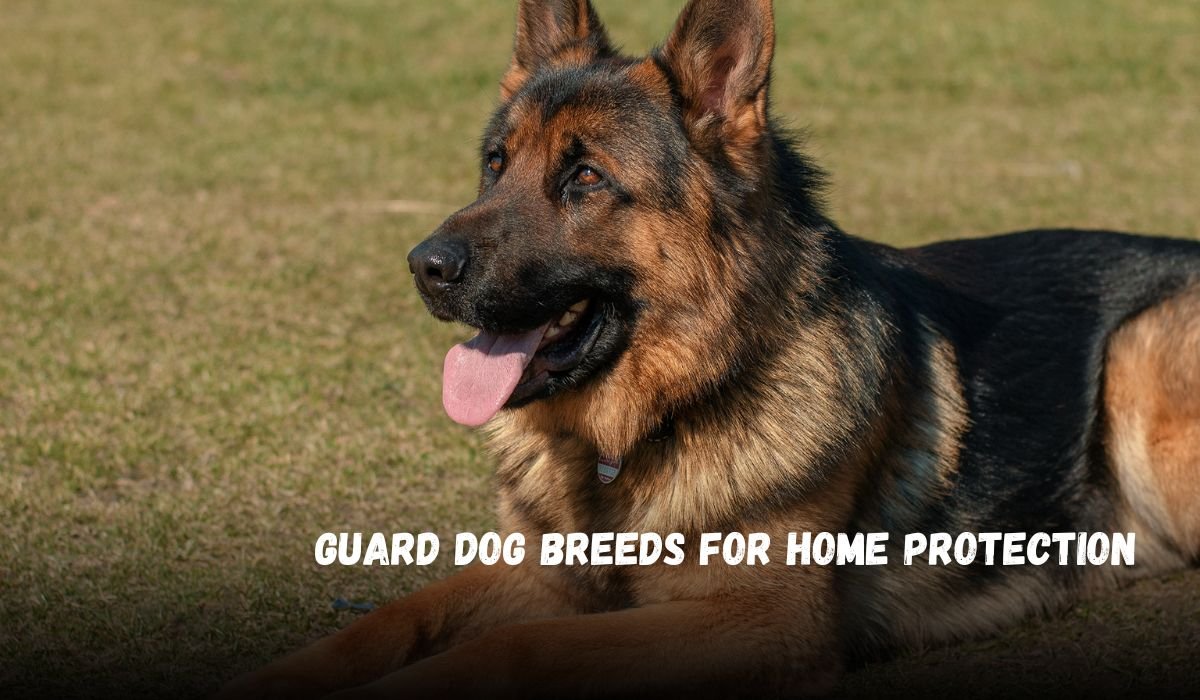When it comes to keeping your home safe, sometimes a strong lock isn’t enough. That’s where guard dogs come in. These loyal companions aren’t just pets—they’re your personal bodyguards, always alert and ready to defend your family. If you’re thinking about getting a dog that can protect your home and also be a great companion, you’re in the right place. Let’s talk about some of the best guard dog breeds out there.
German Shepherd
German Shepherds are probably the first dogs that come to mind when you think of protection. And for a good reason! These dogs are strong, smart, and super loyal. That’s why police and military forces all over the world use them. They’re quick learners too, which makes them easy to train. But they’re not all business—they can be gentle and loving with their families.
Rottweiler
Rottweilers may look a little intimidating at first, but they’re big softies once they trust you. Still, don’t be fooled—they’re excellent guard dogs. These dogs are powerful, fearless, and very protective of their family. With proper training and socializing, they become calm and obedient, but always ready to stand their ground if there’s danger.
Doberman Pinscher
Dobermans are sleek, fast, and super alert. If anyone suspicious is near your house, a Doberman will be the first to know. They’re loyal to the bone and very affectionate with their people. What makes them great guard dogs is not just their strength, but also their intelligence and natural instinct to protect.
Bullmastiff
The Bullmastiff is like a gentle giant. These dogs are massive and strong, and their presence alone can scare off intruders. But what makes them special is their quiet confidence. They’re not barkers—they prefer to act when it really matters. Plus, they love cuddling with their humans after a long day of guarding the house.
Boxer
Boxers are energetic, playful, and surprisingly protective. They bond closely with their families and will do anything to keep them safe. Their muscular build and quick movements make them great for guarding. Don’t let their goofy personality fool you—they’re always alert and ready to protect.
Belgian Malinois
Think of the Belgian Malinois as the cousin of the German Shepherd—just faster and more intense. These dogs are often used in special forces because of their high energy and focus. If you’re an active person who can handle a high-energy dog, the Malinois is an amazing choice for home protection. Just be prepared to keep them busy—they get bored easily!
Great Dane
Yes, the Great Dane! They might not be the first breed that pops into your mind, but their size alone can be enough to scare anyone away. These dogs are calm, gentle giants who love their people deeply. While they’re not aggressive, they’re very aware of their surroundings and won’t hesitate to protect their family if needed.
Conclusion
Choosing a guard dog is more than just picking the toughest-looking pup. It’s about finding a loyal companion who fits your lifestyle and will stand by you no matter what. Whether you go with a German Shepherd or a Great Dane, the right guard dog will be your best friend, your protector, and a loving part of your family.
Just remember, training and socializing are key. Even the best guard dog breeds need guidance and love to be their best selves. A well-trained dog isn’t just safer—it’s happier, too.
FAQs
What’s the easiest guard dog to train?
German Shepherds are often the easiest to train because of their high intelligence and eagerness to please.
Do guard dogs get along with kids?
Yes, most guard dogs can be very gentle and loving with children, especially if raised with them.
Can a small dog be a guard dog?
While small dogs can be good watchdogs (alerting you by barking), they usually lack the physical ability to protect like larger breeds.
How do I train a guard dog at home?
Start with basic obedience and gradually teach them to recognize and respond to threats. It’s a good idea to get help from a professional trainer.
Are guard dogs aggressive by nature?
Not necessarily. A well-trained guard dog is confident and protective, not aggressive. Aggression usually comes from poor training or fear.














